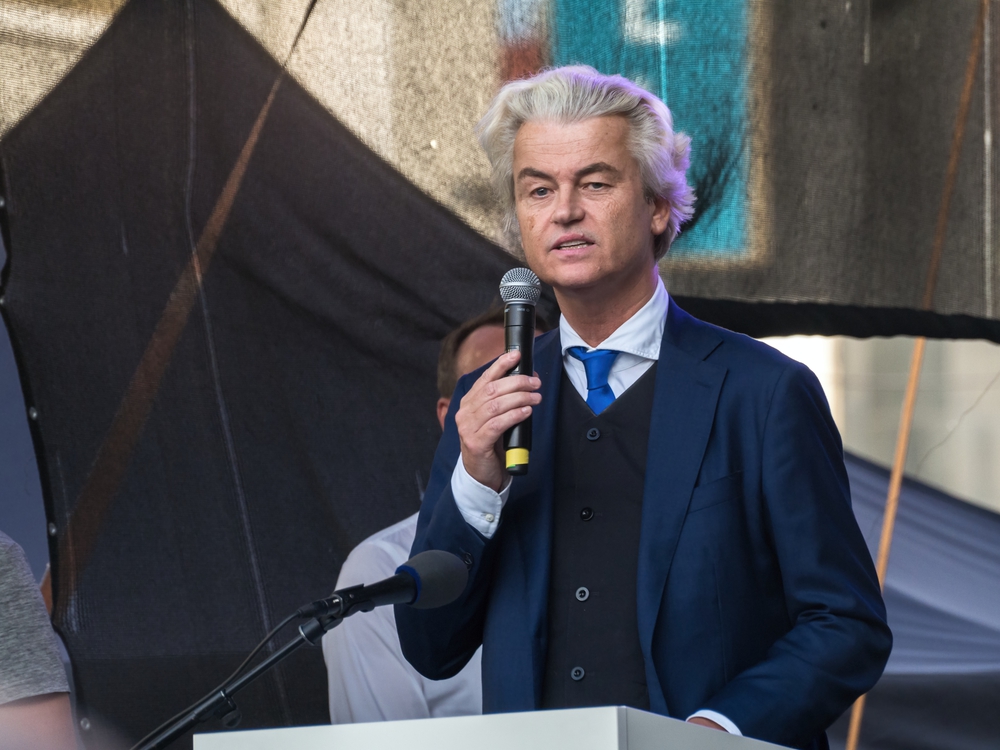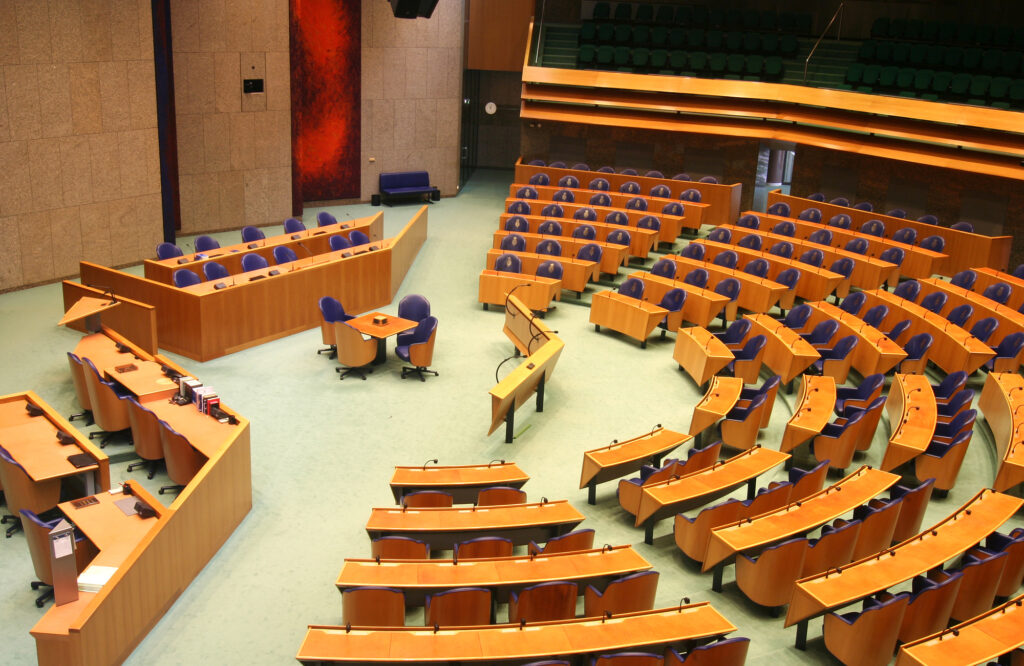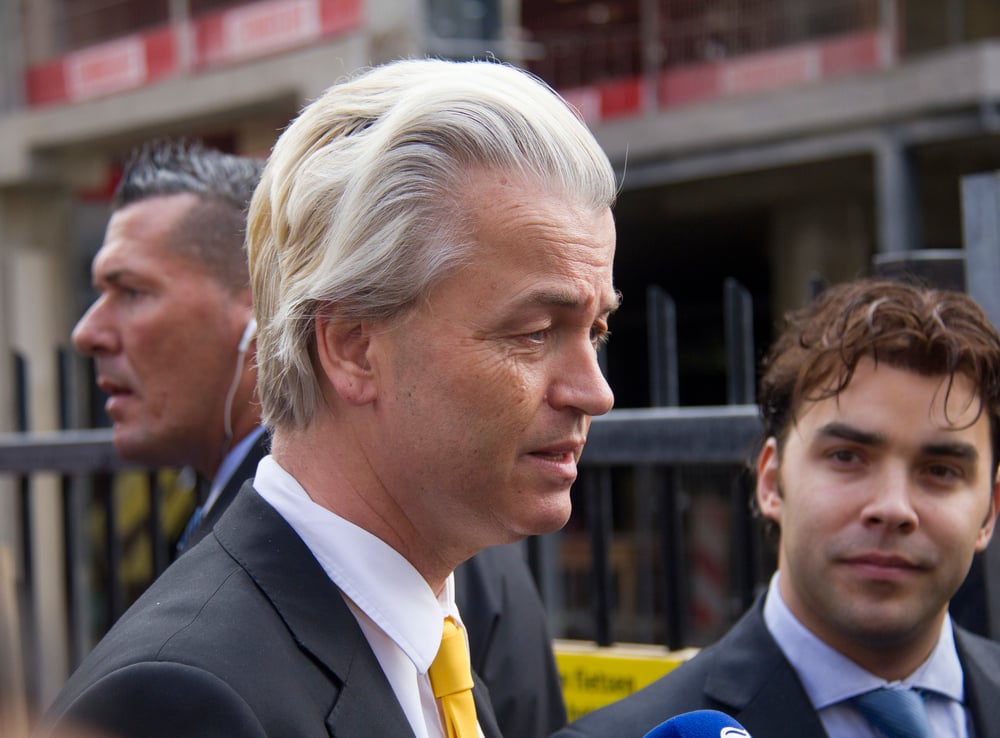The news of Geert Wilders’s victory in the recent Dutch elections has been making headlines worldwide.
To many people’s surprise, the controversial politician’s party, the Partij voor de Vrijheid (PVV, English: Party for Freedom) won the majority of votes during the 2023 national elections, winning 37 out of 150 seats.
From Dutch people to internationals, and from the BBC to the New York Times, everyone seems to be in shock over the victory of the “far right” in the Netherlands.
But who is Geert Wilders? What does he want to do with the Netherlands? And what the hell is up with his hair? Lots of questions.
Here are the answers.
1. Why is Geert Wilders so controversial?
One thing to know about Mr. Wilders is that he’s been a fixture in the Dutch political landscape for a long time.
The 60-year-old founded his Partij voor de Vrijheid (PVV or Party for Freedom) all the way back in 2006, and even before that, he was present in Dutch politics. Wilders has held a seat in the Dutch parliament since 1998.

That gives him many years in the public eye and plenty of opportunities to be controversial — let’s recount his three worst moments.
“Minder Marokkanen” (“less Moroccans”): sentenced for hate speech
During a speech following the 2014 municipal elections, Wilders asked his supporters if they wanted “more or less Moroccans” in the Netherlands.
This caused the crowd to respond with a chant of “minder, minder, minder” — “less, less, less”. Wilders slyly responded, “then we’ll arrange that.”
Following this interaction, the politician was reported to the Dutch public prosecution service a whopping 6,474 times. The result? A 6-year-long trial and a sentencing for hate speech.
Outgoing Prime Minister Mark Rutte then decided to exclude Wilders from the government for all of his subsequent terms.
“Fitna”: a short film about Islam
In 2008, Wilders premiered a short film called “Fitna”.
Running for 17 minutes, the movie demonises Islam by attempting to prove how the Qur’an, the religion’s holy scripture, motivates its followers to hate all who violate Islamic teachings.
To no one’s surprise, Wilders struggled to find a broadcaster who wanted to show his ‘masterpiece’ on television — and he ended up releasing it online.
Within three hours, it had more than three million views.
A website to report Eastern European people
Did you think Europeans were safe from Wilders’ questionable opinions? We’re afraid we’re going to have to disappoint you.
In 2012, Wilders’ PVV launched a website on which people could file complaints about “Central and Eastern Europeans”.
Why? He wanted to forward the citizen’s concerns to the Dutch Ministry of Social Affairs.
According to Wilders, labour migration from “Poland and other Central and Eastern European countries” would lead to major problems in society and must be avoided.
2. What do his policies actually say?
One reason why many people are shocked by Geert Wilders’ victory is that his election programme has some pretty scary stuff in it.
Some of the most controversial points include:
- A push for a ban on Islamic education, Qur’ans, mosques, and wearing Islamic headscarves in government buildings.
- A call to cut the climate-change budget and use it to build more roads and improve public transport.
- The intention to eliminate “all kinds of nonsensical subsidies for art, culture, public broadcasting, expats, and greening”.
- An argument for opting out of EU regulations and reintroducing national border control, called “Nexit”.
Want a more detailed overview of Wilder’s visions? Check out our complete article on the matter.
3. Will Geert Wilders be the next Dutch Prime Minister?
The short answer to this question is: we don’t know yet. Wilders did not automatically become Prime Minister when his party won the most seats during the election.
To become Prime Minister, Wilders must establish a government with himself as the leader.
As Reuters explains, to get there, he will have to successfully form a coalition with the other parties by reaching the required majority of 76 seats in the 150-seat parliament.

It could take months until such a coalition is formed, and Wilders will likely need to convince potential coalition partners he is willing to compromise on certain topics.
READ MORE | Dutch Quirk #123: have an extreme number of political parties
Alternatively, there can also be a so-called “minority cabinet” (like Rutte I) — a cabinet with a Prime Minister other than Wilders but with the PVV in it.
If Wilders fails to form a coalition, then possibilities for a coalition between other parties will be researched — but that’s not very likely. If all options fail, new elections will be announced.
4. What’s Wilders’ stance on Russia and Ukraine?
There are a few layers to this answer. To start off, Geert Wilders declared himself as an “ally” of Vladimir Putin on multiple occasions. They align, according to Wilders, in their fight against terrorism and mass immigration.
However, when it comes to the 2022 invasion of Ukraine by Russia, the PVV has declared that they condemn it.
READ MORE | The Dutch language guide to understanding Dutch politics
That being said, they want to stop all military aid to Ukraine and also oppose sanctions against Russia.
5. Could the Netherlands actually leave the EU under Geert Wilders?
The election programme of the PVV states clearly that the country should be “sovereign”. As the NOS writes, Wilders believes that “intensive cooperation between countries does not need a political union like the EU.”
To settle the debate on “Nexit”, Wilders is calling for a referendum. The fact is that the majority of the Dutch government and Dutch people are pro-Europe and would likely vote to stay in the EU.
6. What’s up with Geert Wilders’ hair?
Is it white? Is it blonde? Why is there so much of it? Honestly, we’re not sure. According to most sources online, Geert’s natural hair was brown and curly when he was young.

Now it seems like has taken a page out of Barbie’s handbook: he bleaches it and dyes it blonde. (This Barbie hates immigrants.)
Our question is: what’s up with controversial politicians and their fluffy hair? Why do they always go hand-in-hand? Well, as it seems, it could all be linked to “awareness of image”, thinks The Guardian.
7. What do we know about his private life?
Despite his poep-talking about Eastern and Central Europeans, Geert Wilders is happily married to a Hungarian woman — his wife Krisztina. The two have been married for over 30 years.
Instead of children, the Wilders have three adorable cats called Noortje, Snoetje, and Pluisje. In his free time, Wilders runs a Twitter account for them. (No, that’s not a joke. It’s actually true.)
Fijne Kerstdagen! 😻😻 pic.twitter.com/rQtwxNCNNp— Snoetje en Pluisje (@Wilderspoezen) December 24, 2021
Besides that, Geert has an older brother called Paul, who says he loves his brother but doesn’t agree with his political views.
We’ll be honest, we think the life of a right-wing, cat-loving, hair-bleaching man could be a funny premise for a comedy movie — but not the next Dutch Prime Minister.
But hey, all we can do at this point is wait and see.
What are your thoughts on Geert Wilders? Share them in the comments!

